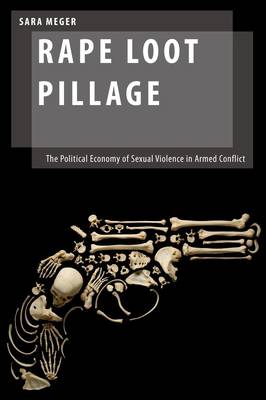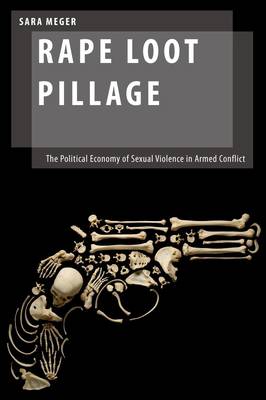
- Retrait gratuit dans votre magasin Club
- 7.000.000 titres dans notre catalogue
- Payer en toute sécurité
- Toujours un magasin près de chez vous
- Retrait gratuit dans votre magasin Club
- 7.000.0000 titres dans notre catalogue
- Payer en toute sécurité
- Toujours un magasin près de chez vous
140,95 €
+ 281 points
Description
Rape and other forms of sexual violence have always been a feature of war. Yet it is only fairly recently that researchers have identified rape as a deliberate tool of war-making rather than simply an inevitable side effect of armed conflict. Much of the emerging literature has suggested that the underlying causes of rape stem from a single motivation-whether individual, symbolic, or strategic-leading to disagreement in the field about how we can understand and respond to the causes and consequences of sexual violence in war. In Rape Loot Pillage, Sara Meger argues that sexual violence is a form of gender-based political violence (perpetrated against both men and women) and a manifestation of unequal gender relations that are exacerbated by the social, political, and economic conditions of war. She looks at trends in the form and function of sexual violence in recent and ongoing conflicts to contend that, in different contexts, sexual violence takes different forms and is used in pursuit of different objectives. For this reason, no single framework for addressing conflict-related sexual violence will be sufficient. Taking a political economy perspective, Meger maintains that these variations can be explained by broader struggles over territory, assets, and other productive resources that motivate contemporary armed conflicts. Sexual violence is a reflection of global political economic struggles, and can't be addressed only at the local level-it must be addressed through regional and international policy. She concludes by providing some initial ideas about how this can be done via the UN and national governments.
Spécifications
Parties prenantes
- Auteur(s) :
- Editeur:
Contenu
- Nombre de pages :
- 250
- Langue:
- Anglais
- Collection :
Caractéristiques
- EAN:
- 9780190277666
- Date de parution :
- 01-08-16
- Format:
- Livre relié
- Format numérique:
- Genaaid
- Dimensions :
- 163 mm x 236 mm
- Poids :
- 612 g

Les avis
Nous publions uniquement les avis qui respectent les conditions requises. Consultez nos conditions pour les avis.






